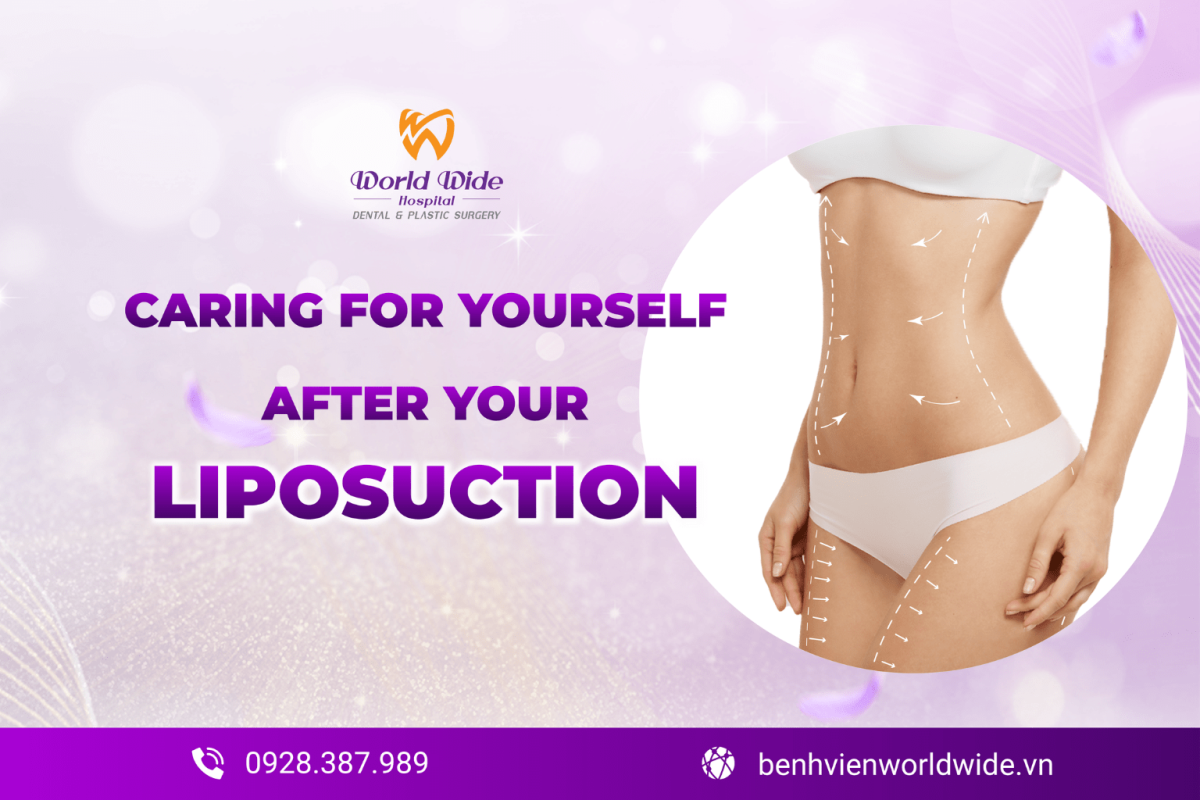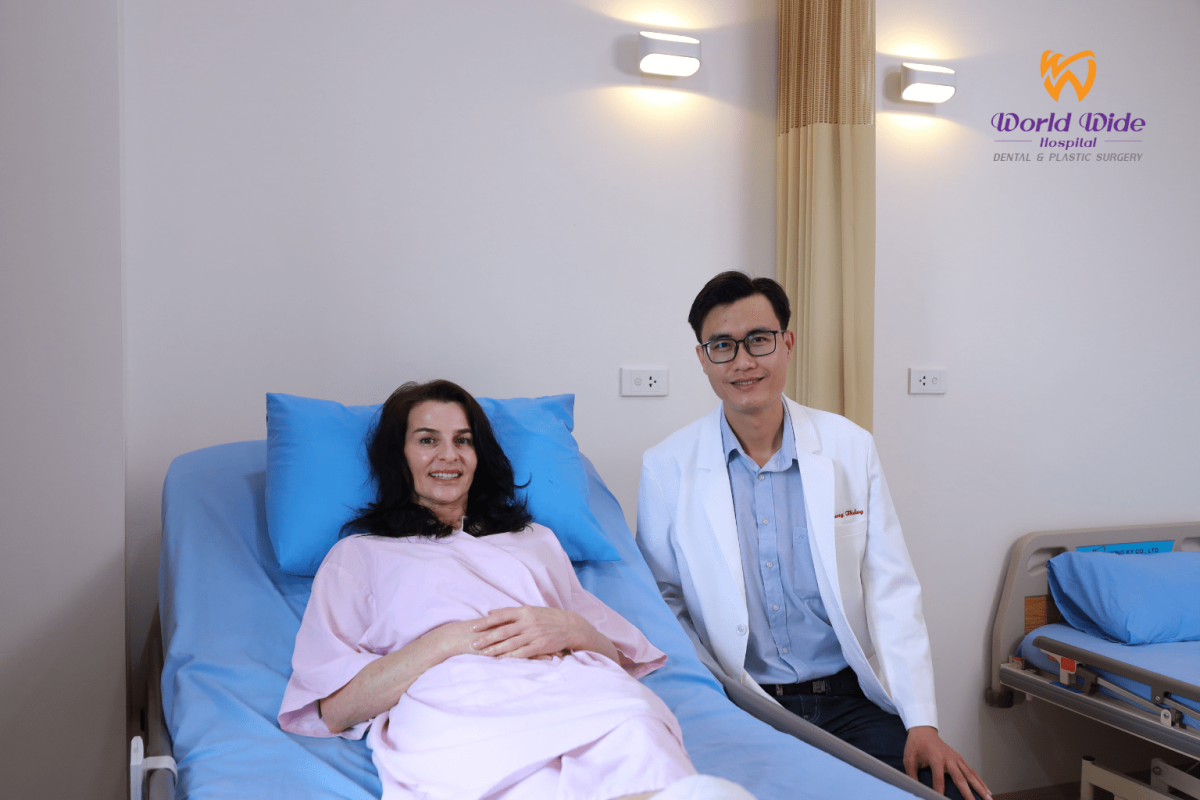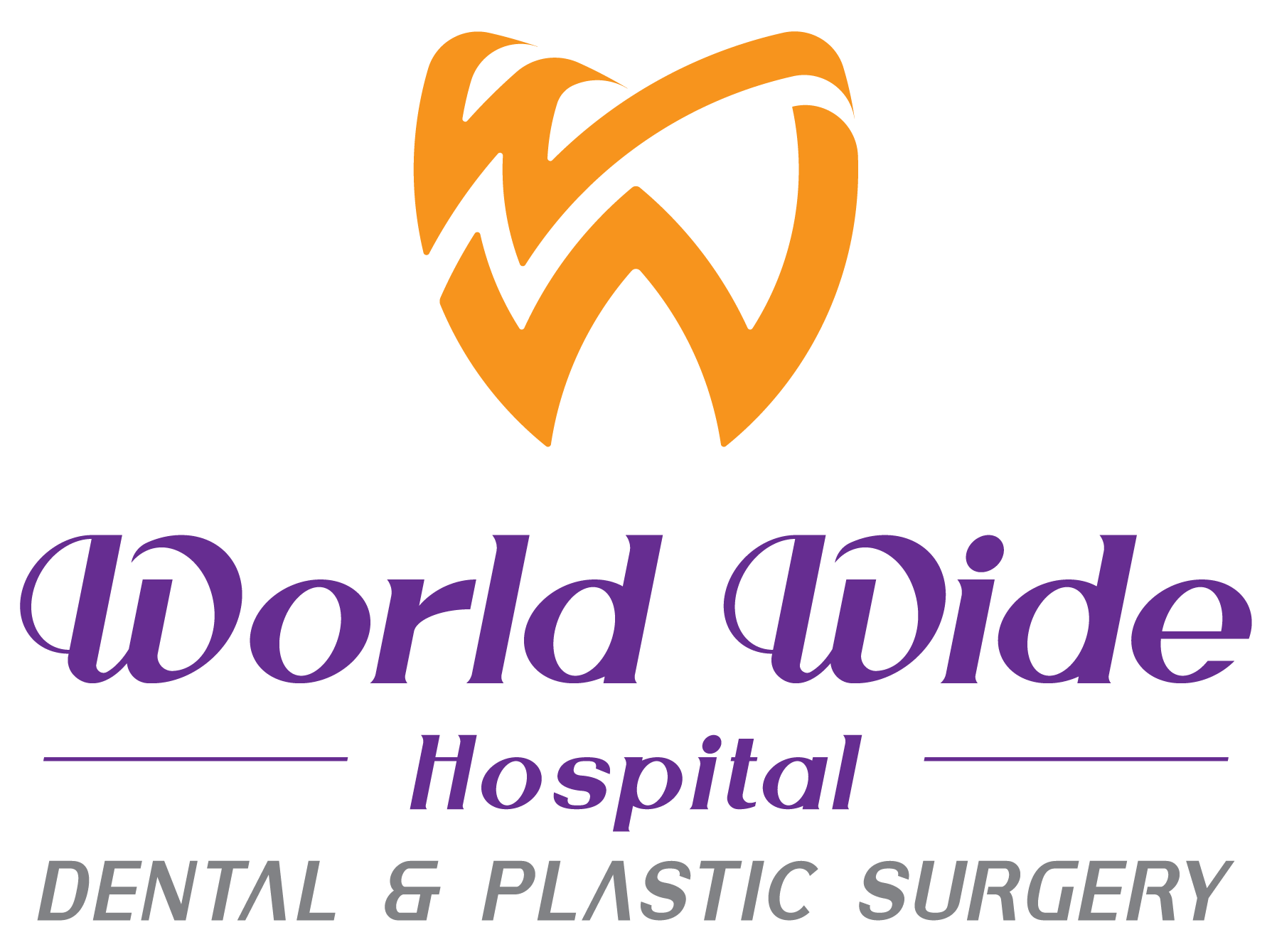
- If your liposuction is performed under general anesthesia, you will stay at Worldwide Hospital for 1 night. You will have a gauze bandage covering your incisions (surgical cut). You may have a drain that’s inserted in your chest to drain the fluid from your surgery. The nurse will remove this for you within 24 hours after surgery.
- You may have fluid drainage from incision sites for the first few days, especially for legs and arms liposuctions. Our nurse will check your wounds and drain the fluid for you.
- You will need to put on the gauze bandage until stitches removal. Replace this gauze a few times a day. This will also help protect the incisions against the compression garment.
- During recovery time, your liposuction area (stomach, back, waist, arms, legs, etc.) may feel tight, numb, tingly, sensitive or swollen for several weeks after surgery. The liposuction area might feel swollen/hard for a month before it gets better and shows true result.
- You must wear the compression garment continuously for the first 3 months after surgery (except for when showering/cleaning incisions). Every 4-5 hours, you can take the compression garment off for about 10-15 minutes to let the skin breathe. After liposuction, your tissues need time to adjust to their new shape. Compression garments hold these tissues in place, stopping them from moving too much. After the required period, you can wear the compression garment for as long as you can (usually at night for convenience) as this helps tightening the liposuction area and prolonging the result of the liposuction.
- After surgery, you should try to move around and do gentle stretches for better blood circulation, which also helps reduce swelling. However, you will have limited mobility for at least one week following your surgery, so avoid participating in activities that might require a lot of walking or straining for your body.
- Avoid snug clothing at first because it can interfere with fluid drainage.
- Avoid still (non-running) water for two weeks after surgery. This includes baths, swimming pools, hot tubs, lakes, oceans, etc.
- Avoid highly processed foods, high-fat fried foods, sugary treats, drinks, as well as a diet high in salt is key to a faster and smoother recovery time. Fluids are still crucial, so drink up, eat well, and sleep often to get the best possible results from surgery. Avoid eating foods that may cause allergy.

- Avoid alcohol and quit smoking until at least a month after surgery.
- Women who have undergone breast enlargement surgery should seek an MRI scan every few years after surgery as a precaution.
Shower & Care for the incisions
- Until stitches removal, clean the skin incisions with normal saline (Natri Clorid 0.9%) and sterile compresses three times per day starting the day after surgery. It’s important to clean any dried blood and dead skin cells from the incisions.
- You can take showers after 2 days, but avoid pointing the water stream directly at the incisions and try not to get soap on the incisions and until after stitches removal. We do provide hair washing service at our hospital if it’s hard for you to wash your hair. After stitches removal you can take full shower but be gentle around the incisions.
- You can use lotion as long as it doesn’t cover the incisions. After stitches removal you can put on normal skincare products. After all stitches have been removed, use scar cream as directed by your doctor/nurse. We recommend using Stratamed cream twice a day. Make sure you clean the incisions before putting on the cream.
- Any scars should be kept out of direct sunlight and artificial UV for around one year, as skin in this area is much thinner and prone to burning which can result in permanent scarring or discoloration. Use sunscreen with SPF 30 or more.
Follow-up appointments
- You will need to see the surgeon for checkup day 1 and day 3 after surgery. Your stitches will be removed between 7 to 10 days after your surgery. Your nurse will make these appointments for you and will inform you if more appointments are necessary.

- It is crucial that patients attend all of their required follow-up appointments. During these visits, the surgeon will evaluate your healing progress and make ongoing recommendations regarding your recovery. Our nurse will change your bandage and clean the surgery sites for you at each follow up appointment.
- Besides these mandatory appointments, you are welcome to stop by the hospital anytime if you want our nurse to care for the incisions for you.
Antibiotics
Please take the antibiotics as directed. Make sure you finish the antibiotic even if you feel like you are completely better and do not need it. Discontinue antibiotic use in the event of a rash or other unfavorable reaction, and notify the hospital of the reaction.
If you have the following symptoms, please call for assistant at +84 (922253888): a fever of 100.4° F (38° C) or higher, shaking chills, nausea, vomiting, increased pain, swelling, and redness at your surgical sites, continuous drainage from your suture lines, separation of your suture lines, sudden shortness of breath or trouble breathing, any unexplained or unexpected symptoms.

 Tiếng Việt
Tiếng Việt